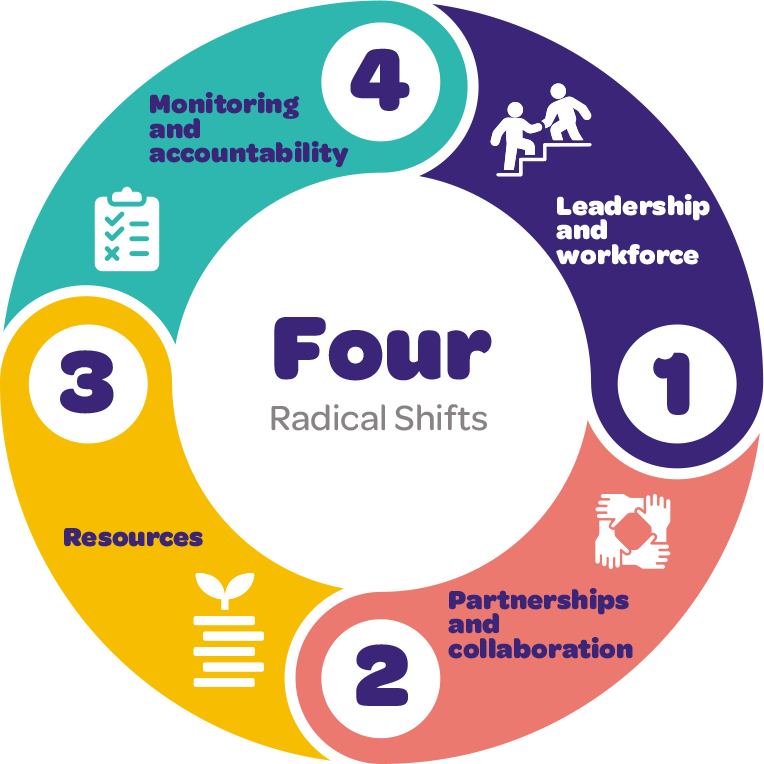Brave and compassionate leadership and a thriving workforce that can take action
Brave and compassionate leaders value people, show kindness and build good relationships. They don’t run away or give up when things are confusing or difficult or uncertain, and they are ready to make tough decisions when needed. These leaders help others to feel happy and motivated to do their best work. They love when people come up with new ideas, and they make it easy to try these out and make things better. They get rid of unnecessary rules and old ways of thinking. They make sure that things like money and people’s time are spent on doing the right things to make Sheffield healthier and fairer. They are open and honest. They make sure everyone knows what's working well and what's not, even when it's hard to talk about. Brave and compassionate leaders encourage each other to be bold and make a difference and stand together when doing the right thing is challenged.
A thriving workforce includes people who work in jobs, volunteers, and those who take care of others without getting paid. Being able to take action means having the power to be creative and think in new ways, take the lead and make decisions, and draw on financial resources. It also means having the right skills and training and being supported by those around you. This workforce feels like their work really belongs to them, and they're motivated to share their ideas and skills to fix problems and improve the way things are done. They are flexible and can face up to challenges and keep going after setbacks. They are inclusive, and they believe that including different perspectives and experiences is crucial for coming up with the best ideas. They take hold of opportunities to keep on learning and developing, and they find meaning in their work. They treat everyone with respect and kindness. What matters to them is making Sheffield fairer and healthier.
What will it take to make this shift?
- Choosing Good Leaders: We need to agree on the kind of leaders we want for Sheffield. This means knowing the attitudes, skills, and behaviours that will make our city healthier and fairer.
- Developing Leaders: We must invest in training and developing our current and future leaders across different organisations and within communities.
- Listening Leaders: Our leaders should listen to staff and volunteers and encourage them to share their honest thoughts. This will bring new ideas and helpful feedback.
- Creative Teams: Leaders should help teams, staff, and volunteers be creative, work well together, learn from mistakes, and share what they learn.
- Valuing People: We need to appreciate and support people who work, those who volunteer, and everyone who cares for others without pay.
- Diversity and Fairness: We should value diversity and make sure there are fair chances for everyone to grow and succeed in different organisations and sectors.
- Health and Wellbeing: We need to invest more in the health and wellbeing of our staff and volunteers. This includes paying them a real living wage and giving more support to unpaid carers.
- Compassionate Culture: We should create a work culture that is kind and compassionate, with fewer unnecessary rules. This culture should focus on treating people with dignity and building trust through human connections, not just assessments and rules.
Commitments from the Health and Wellbeing Board
- We will create a clear picture of the attitudes, skills, and behaviours needed for good leadership to make Sheffield healthier and fairer.
- We will push for fair development opportunities across all organisations and sectors in Sheffield.
- We will be compassionate, brave and bold leaders who move from talk to action.
- We will value volunteers as they are very important in creating health.
- We will call for more recognition and support for unpaid carers.
- We will listen to many different voices.
- We will explore and promote kind, creative and human ways to deliver public services.


